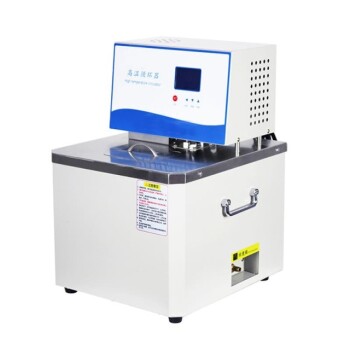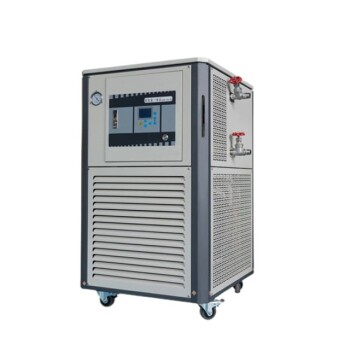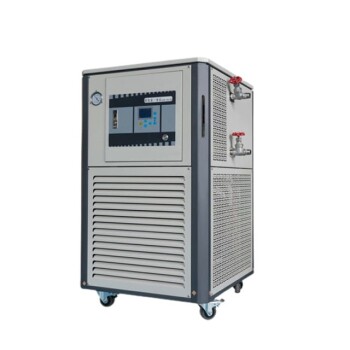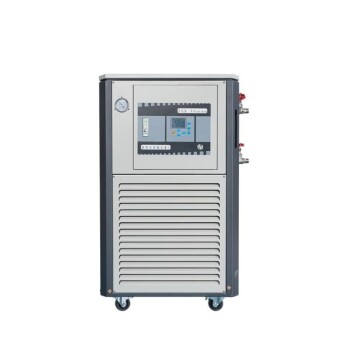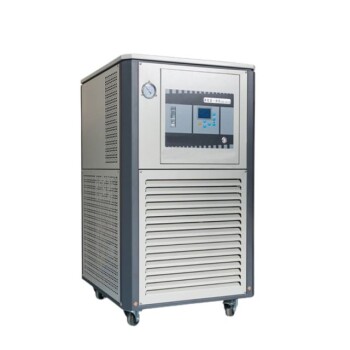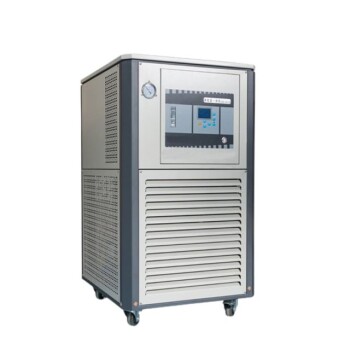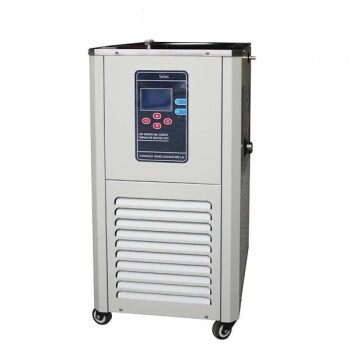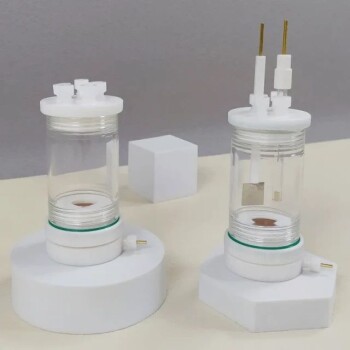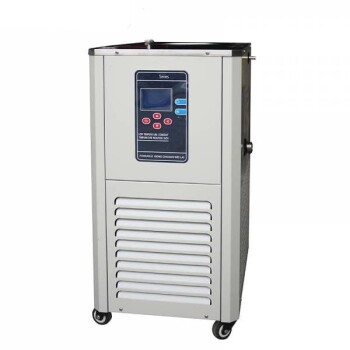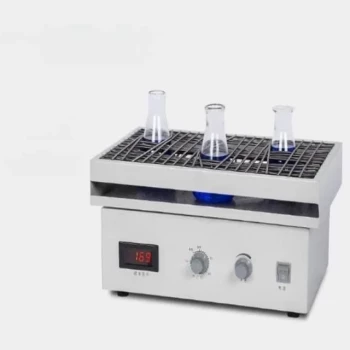Yes, water in a water bath absolutely evaporates. This is a fundamental physical process that occurs any time water is exposed to air. In a water bath, where the water is heated, this process is significantly accelerated, leading to noticeable water loss over time.
The critical question is not if a water bath will evaporate, but how to manage it. Uncontrolled evaporation can compromise the results of a long cooking process or a precise lab experiment by exposing the subject or damaging equipment.
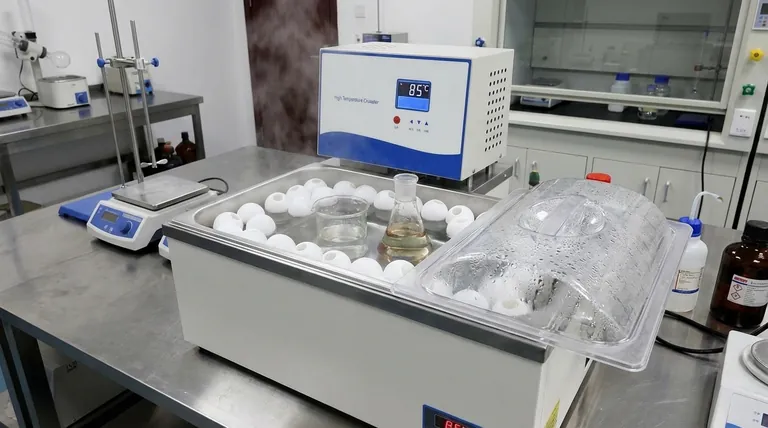
The Key Factors Driving Evaporation
Evaporation is the process of a liquid turning into a vapor. In a water bath, several factors work together to determine how quickly this happens.
The Role of Temperature
The warmer the water, the more energy its molecules have. This increased energy allows them to escape from the liquid's surface and become water vapor more easily. A water bath at 185°F (85°C) will lose water much faster than one at 135°F (57°C).
The Importance of Surface Area
Only the water molecules at the surface can escape into the air. The larger the surface area of your water bath, the more molecules are exposed and the faster evaporation will occur. A wide, shallow container will lose water more quickly than a deep, narrow one holding the same volume.
The Impact of Airflow and Humidity
Dry air moving across the water's surface will whisk away water vapor, encouraging more water to evaporate to take its place. Conversely, if the air above the water is already saturated with humidity, the evaporation rate will slow down significantly.
Why Managing Evaporation is Critical
While a small amount of water loss is often trivial, significant evaporation can cause serious problems in both culinary and scientific applications.
In Cooking (Sous Vide)
For long sous vide cooks (e.g., brisket for 24-48 hours), evaporation is a major concern. If the water level drops below the minimum fill line of the immersion circulator, the device can be damaged. More importantly, if the water drops enough to expose part of the food, that section will not cook properly, ruining the dish.
In the Laboratory
In a lab setting, a water bath is used for its temperature stability. As water evaporates, the total volume decreases. A smaller body of water is less thermally stable, meaning its temperature is more likely to fluctuate, which can compromise an experiment. It also creates the manual task of constantly monitoring and refilling the bath.
Practical Strategies to Minimize Evaporation
Fortunately, controlling water loss is straightforward. The primary goal is to limit the interaction between the water's surface and the open, dry air.
Use a Lid
The most effective method is to cover the water bath container with a lid. This traps a layer of air directly above the water. This trapped air quickly becomes saturated with humidity, drastically slowing down further evaporation.
Use Floating "Sous Vide" Balls
These are small, hollow, BPA-free plastic balls that you pour onto the surface of the water. They float and arrange themselves to cover about 90% of the surface area, accomplishing two things: they reduce the open surface area and trap a layer of humid air, just like a lid. Their main advantage is flexibility, as you can easily add or remove items from the bath without removing a large, hot lid.
Apply Plastic Wrap
A simple and cheap solution is to stretch plastic wrap tightly over the container's opening. While effective for a single use, it can be cumbersome to reapply and creates plastic waste.
Understanding the Trade-offs
Each solution comes with its own set of considerations. There is no single "best" answer for every situation.
Lids: Effective but Inflexible
A solid lid is the most efficient barrier against evaporation. However, it can be awkward to remove, especially when hot and covered in condensation. It also makes it difficult to access the bath's contents without removing the entire cover.
Floating Balls: Flexible but Incomplete
Sous vide balls offer great accessibility and are highly effective, often reducing evaporation by up to 90%. However, they do not create a perfect seal and are less effective at retaining heat compared to a solid lid.
Plastic Wrap: Cheap but Wasteful
Plastic wrap is an excellent and widely available option for one-off situations. Its main drawbacks are that it's single-use and can sag or tear, potentially falling into the water bath during a long session.
Making the Right Choice for Your Goal
Your strategy for managing evaporation should be based on your specific task.
- If your primary focus is a long cook (>4 hours) or high temperatures (>160°F / 70°C): A cover is essential to prevent significant water loss and potential damage to your circulator.
- If your primary focus is a short, low-temperature task (<4 hours): You can often proceed without a cover, but it is wise to start with extra water as a buffer.
- If your primary focus is frequent access to the bath: Floating balls provide the best balance of evaporation control and easy accessibility.
By understanding and controlling evaporation, you ensure your results are consistent, repeatable, and successful.
Summary Table:
| Factor | Impact on Evaporation |
|---|---|
| Temperature | Higher temperatures significantly increase evaporation rate. |
| Surface Area | Larger surface areas lead to faster water loss. |
| Airflow & Humidity | Dry, moving air accelerates evaporation; humid air slows it. |
| Covering Method | Lids or floating balls can reduce evaporation by up to 90%. |
Ensure precision and consistency in your lab or kitchen with reliable equipment from KINTEK.
Whether you're running sensitive experiments or long-duration sous vide cooking, managing water bath evaporation is critical for success. KINTEK specializes in high-quality lab equipment and consumables designed to deliver stable performance and accurate results.
Let us help you optimize your processes with durable, efficient solutions tailored to your needs. Contact us today to discuss how our products can support your work!
Visual Guide
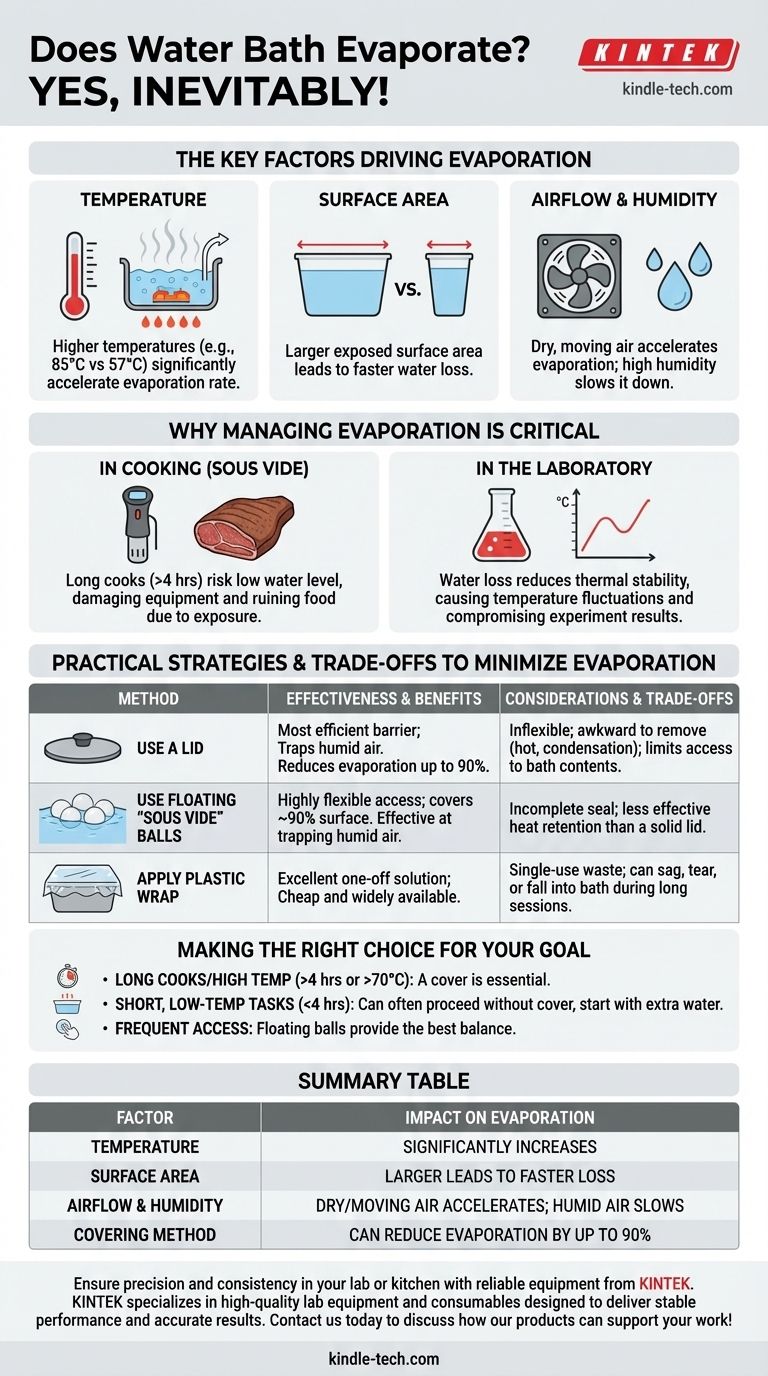
Related Products
- High Temperature Constant Temperature Heating Circulator Water Bath Chiller Circulator for Reaction Bath
- 50L Heating Chilling Circulator Cooling Water Bath Circulator for High and Low Temperature Constant Temperature Reaction
- 100L Heating Chilling Circulator Cooling Water Bath Circulator for High and Low Temperature Constant Temperature Reaction
- 10L Heating Chilling Circulator Cooling Water Bath Circulator for High and Low Temperature Constant Temperature Reaction
- 20L Heating Chilling Circulator Cooling Water Bath Circulator for High and Low Temperature Constant Temperature Reaction
People Also Ask
- What is a plasma furnace? Harness Ultra-High Temperatures for Extreme Material Processing
- How does multi-stage drying in a laboratory oven benefit CMC? Optimize Purity and Preserve Chemical Integrity
- What is RF sputtering radio frequency sputtering? A Guide to Depositing Insulating Thin Films
- What is the problem with oil sludge? It's the precursor to catastrophic engine failure.
- How do high-performance ultrasonic homogenizers facilitate LDH exfoliation? Master Precise Electrostatic Assembly
- What are the factors affecting heat transfer efficiency? Optimize Your Thermal Management System
- What are the different types of sintering process? Choose the Right Method for Your Material
- What is porosity in sintering? Master the Key to Stronger or Functional Materials
